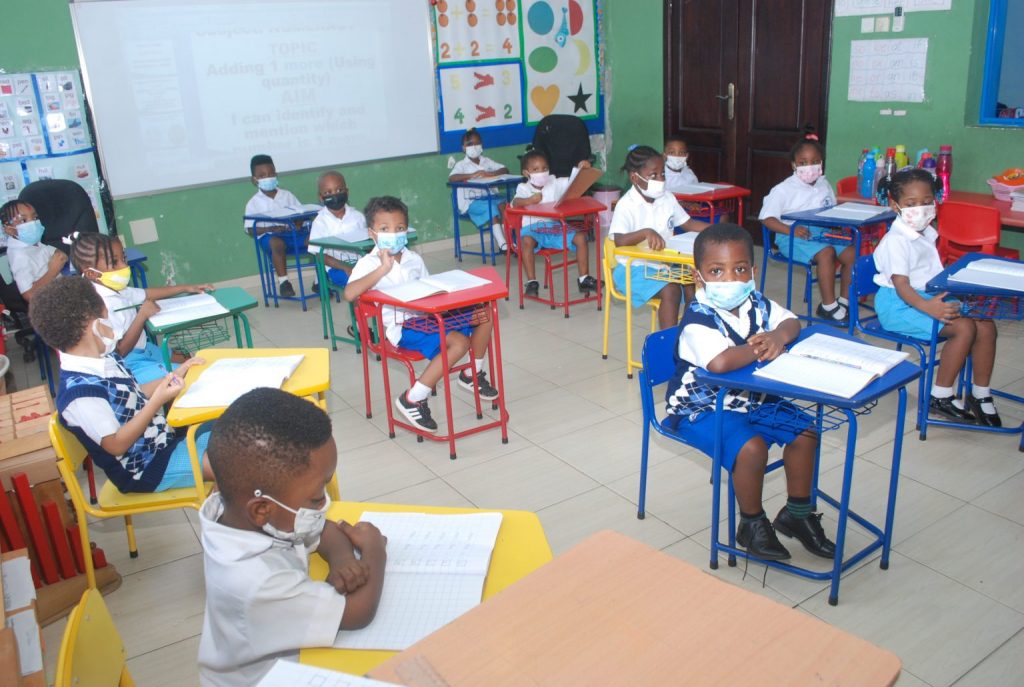Early Years (Reception Class) caters for children from age 4 to 5. It is a distinct learning stage where learners are prepared for later schooling. We give priority to making the learning permanent, connected to real life. We have established a happy and a safe environment for our students where learning through structured, carefully planned lessons and play are the core activities of the class and through these activities, learners develop the social, emotional, physical and creative aspects of their character.
Our Early Years Class (Reception) follows The Early Years Foundation Stage Framework from the UK. Throughout their stay in the Reception Class, the learners are guided through the following curriculum areas:
Communication and language development involves giving children opportunities to experience a rich language environment; to develop their confidence and skills in expressing themselves; and to speak and listen in a range of situations.
Physical development involves providing opportunities for young children to be active and interactive; and to develop their co-ordination, control, and movement. Children must also be helped to understand the importance of physical activity, and to make healthy choices in relation to food.
Personal, Social and Emotional Development(PSED) involves helping children to develop a positive sense of themselves, and others; to form positive relationships and develop respect for others; to develop social skills and learn how to manage their feelings; to understand appropriate behaviour in groups; and to have confidence in their own abilities.
Literacy development involves encouraging children to link sounds and letters and to begin to read and write. Children are given access to a wide range of reading materials (books, poems, and other written materials) to ignite their interest.
Mathematics involves providing children with opportunities to develop and improve their skills in counting, understanding and using numbers, calculating simple addition and subtraction problems; and to describe shapes, spaces, and measure.
Understanding the world involves guiding children to make sense of their physical world and their community through opportunities to explore, observe and find out about people, places, technology and the environment.
Expressive arts and design involves enabling children to explore and play with a wide range of media and materials, as well as providing opportunities and encouragement for sharing their thoughts, ideas and feelings through a variety of activities in art, music, movement, dance, role-play, and design and technology.


